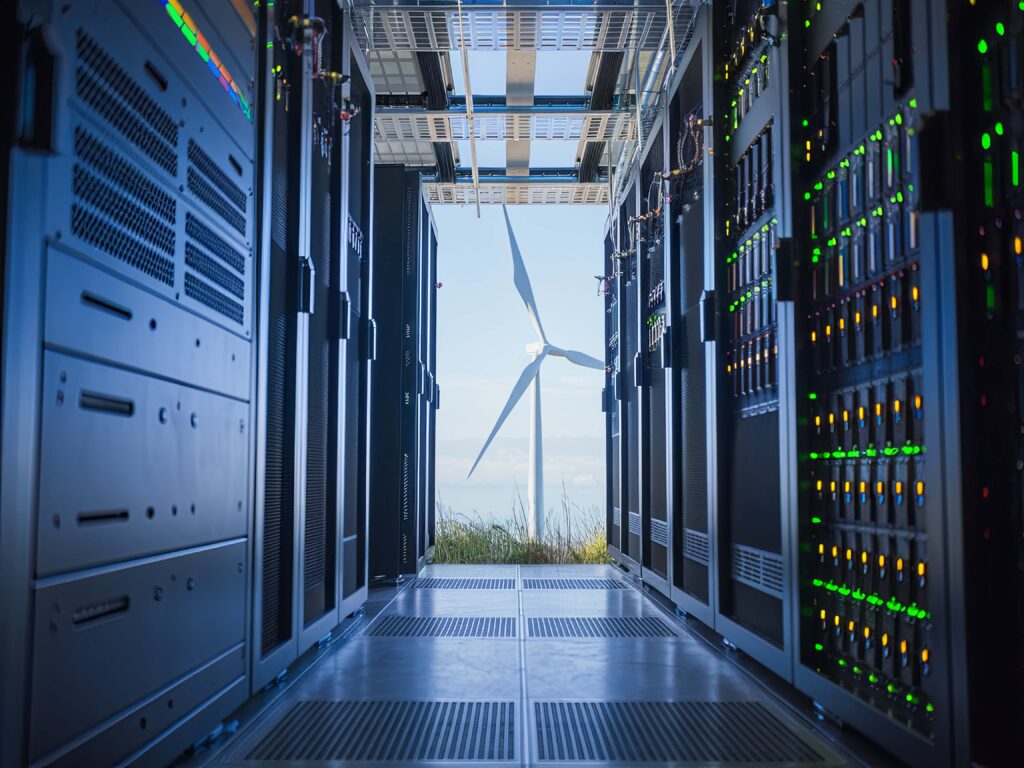Artificial intelligence has been making headlines because of its power to transform industries, workplaces, and even the way we live. But behind the scenes it’s also placing serious demands on our energy infrastructure.
Recent research from tech sustainability analyst Alex de Vries-Gao suggests that by the end of 2025 AI could account for nearly half of all data centre energy consumption. That’s equivalent to 23 gigawatts of power – double what the entire Netherlands currently uses.
With the International Energy Agency now forecasting that AI energy consumption could use as much energy as Japan by the end of the decade, this is no longer a conversation about future possibilities. It’s a challenge unfolding right now, and it puts pressure on data centres, power networks, and the wider infrastructure that keeps everything running.
At ASD, we’ve always kept a close eye on how major shifts like this impact the industries we support. And it’s clear that the rapid rise of AI brings with it a need for more reliable, resilient, and sustainable infrastructure across the UK.
Supporting the UK’s Clean Energy Goals
The UK government has set out a mission to become a clean energy superpower, with a clear target to deliver a fully clean power system by 2030. That includes major investments in offshore and onshore wind, solar projects, new nuclear, and battery storage. Electrification is at the heart of this strategy, and, with electricity demand expected to double by 2050, infrastructure must keep pace.
The government is also making significant investments into nuclear as part of its clean energy strategy. This includes £14.2 billion to support the development of Sizewell C, more than £2.5 billion to progress one of Europe’s first Small Modular Reactor programmes, and a further £2.5 billion towards nuclear fusion through the STEP programme in Nottinghamshire. These projects will play a vital role in providing stable, low-carbon power as part of the UK’s transition to a clean energy system.
And it isn’t just about energy generation. There is also a huge focus on upgrading transmission and distribution networks so that clean energy can reach the places it’s needed most. The Accelerated Strategic Transmission Investment programme, for example, will unlock £19.8 billion in new transmission projects. Add to that the roll-out of battery storage, electric vehicle charging, and low-carbon heating systems, and it’s clear how important robust supply chains and material support will be.

Where ASD Can Make a Difference
Supporting the energy transition – and delivering on government-led initiatives – takes more than ambition. It requires partners who understand the sector’s unique pressures and have the capability to deliver reliably and responsibly.
At ASD, we work closely with energy and nuclear industry customers to provide the complete infrastructure for their supply chain needs. From sourcing and processing to project delivery, we bring everything together under one roof. That means no juggling multiple suppliers or chasing down parts. Just one trusted partner, focused on delivering what you need, when you need it, from start to finish.
We know that the environments our customers work in are often hostile, complex, and safety critical. This is why we supply products that are fully certified to international and industry standards, with traceability and testing.
At ASD, safety always comes first. It’s at the core of how we operate – from the materials we supply to the way we support our customers. Every product, process, and partnership is built around ensuring the highest levels of safety and compliance.
For specialist sectors like nuclear, our Total Metals Management service brings added assurance. This includes tailored stock programmes, expert project and supply chain management, full certification and material traceability, technical advice, and comprehensive material processing, all backed by a team that understands the pressures of working to tight deadlines in regulated environments. Learn more about how we support the energy and nuclear sectors here.
Looking Ahead
At ASD, we remain committed to supporting the UK’s energy transition. That means working closely with partners, staying responsive to change, and continuing to supply the materials that power progress – because the future of energy isn’t just about generation; it’s about the infrastructure behind it all.

